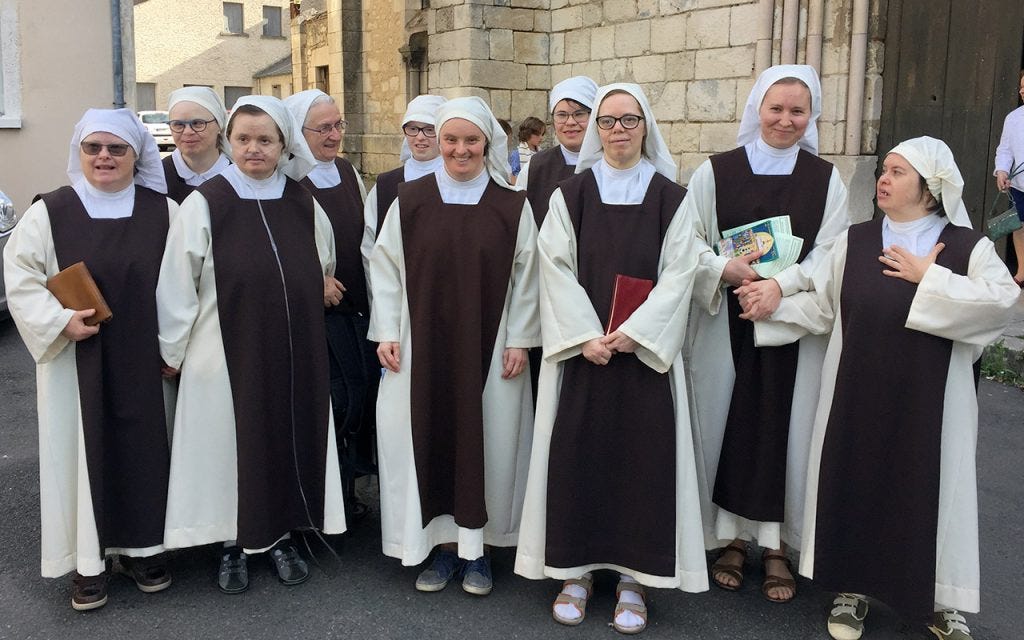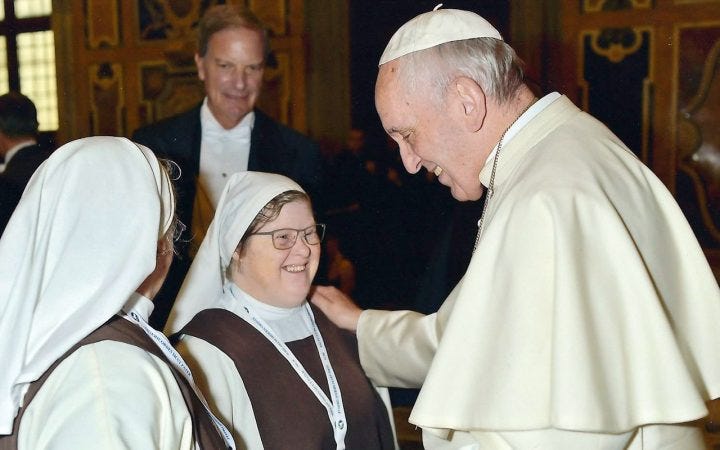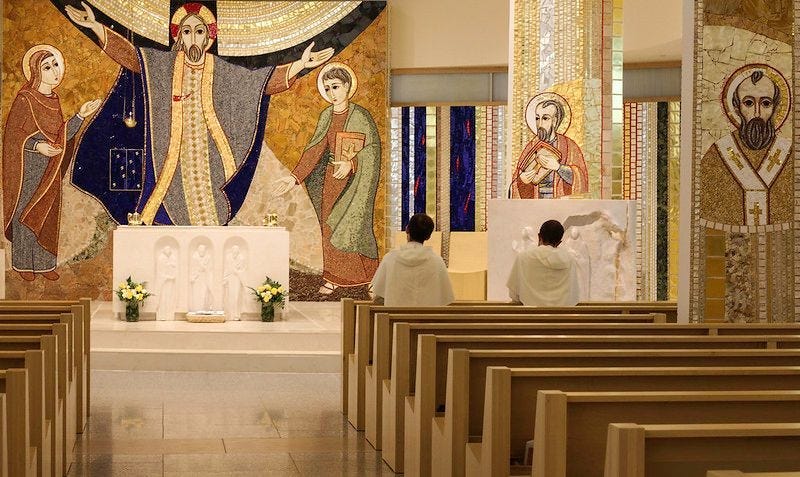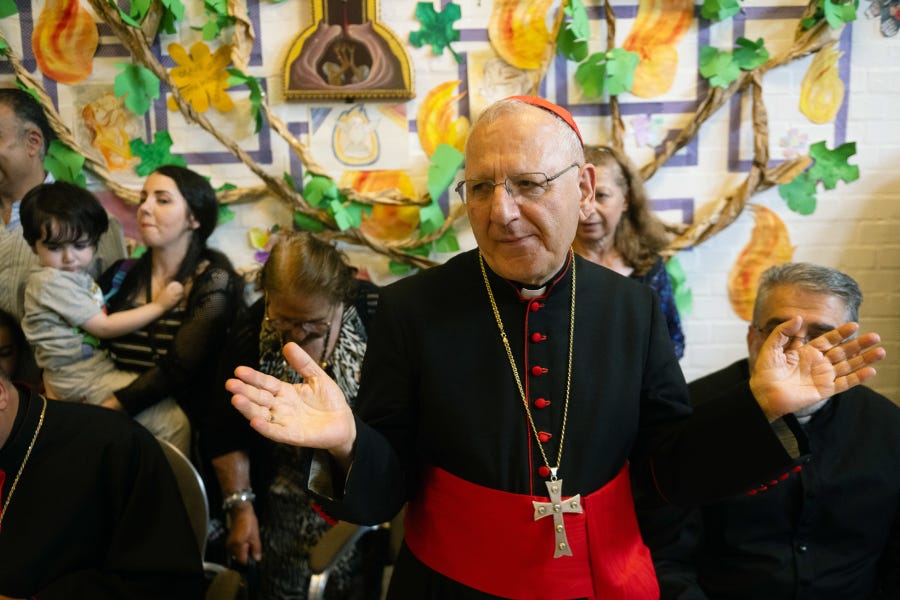Editor’s note: This reading list was first published by The Pillar in 2021.
Monday, March 21 is recognized around the globe as World Down Syndrome Day.
Here are some Catholic voices, insights, and resources on what it means to be a Catholic, and to know and love the disabled.
The Little Sisters, Disciples of the Lamb
In France, the Little Sisters, Disciples of the Lamb, is a religious community that has “adapted itself to Down’s syndrome and to the experience of religious life with a handicap.”
The community is the only one in the world known to invite women with Down syndrome to enter religious life as full members of a religious institute.
Watch a video about their life, and learn more here.
Pope Francis
The Church cannot be voiceless or out of tune in the defence and promotion of people with disabilities. Her closeness to the families helps them to overcome the loneliness that often risks closing them off for want of attention and support. This applies even more so due to her responsibility with regard to generating and forming the Christian life. The community must not lack the words and above all the gestures for encountering and welcoming people with disabilities. The Sunday Liturgy, especially, must be able to include them, so that the encounter with the Risen Lord and with the community itself may be a source of hope and courage in the difficult journey of life.
Let us learn to overcome the discomfort and fear that at times we can feel toward persons with disabilities. Let us learn to seek and also to intelligently “invent” appropriate tools so that no one lacks the support of grace. Let us form — first of all by example! — catechists ever more able to accompany these persons so they may grow in faith and give their genuine and original contribution to the life of the Church.
“Catechesis and People with Disabilities,” 2017. Read it here.
“My brother George”
Archbishop Joseph Kurtz remembers his brother George, who had Down syndrome.
Pope St. John Paul II
The starting point for every reflection on disability is rooted in the fundamental convictions of Christian anthropology: even when disabled persons are mentally impaired or when their sensory or intellectual capacity is damaged, they are fully human beings and possess the sacred and inalienable rights that belong to every human creature. …. The disabled person, with all the limitations and suffering that scar him or her, forces us to question ourselves, with respect and wisdom, on the mystery of man. In fact, the more we move about in the dark and unknown areas of human reality, the better we understand that it is in the more difficult and disturbing situations that the dignity and grandeur of the human being emerges.
The wounded humanity of the disabled challenges us to recognize, accept and promote in each one of these brothers and sisters of ours the incomparable value of the human being created by God to be a son in the Son.
Theology of Disability
Dr. Miguel Romero, a theologian at Salve Regina University, on the gift of vulnerability, and his brother. (Yes, that’s The Pillar’s JD Flynn introducing him.)
Disability: A Thread for Weaving Joy
A friend of mine has a son with Down syndrome, and she calls him a “sniffer of souls.” I know him, and it’s true. He is. He may have an IQ of 47, and he’ll never read The Brothers Karamazov, but he has a piercingly quick sense of the people he meets. He knows when he’s loved—and he knows when he’s not. Ultimately, I think we’re all like her son. We hunger for people to confirm that we have meaning by showing us love. We need that love. And we suffer when that love is withheld.
—Archbishop Charles Chaput. Read it here.
“I am a man with Down syndrome, and my life is worth living”
Frank Stephens speaks eloquently on life with Down syndrome.
“I am not a research scientist. But no one knows more about life with Down syndrome than I do.”
The disabled and the sacraments
It is essential that all forms of the liturgy be completely accessible to persons with disabilities, since these forms are the essence of the spiritual tie that binds the Christian community together. To exclude members of the parish from these celebrations of the life of the Church, even by passive omission, is to deny the reality of that community. Accessibility involves far more than physical alterations to parish buildings. Realistic provision must be made for Catholics with disabilities to participate fully in the Eucharist and other liturgical celebrations
“Guidelines for the Celebration of the Sacraments with Persons with Disabilities,” USCCB. Find more USCCB resources here.





